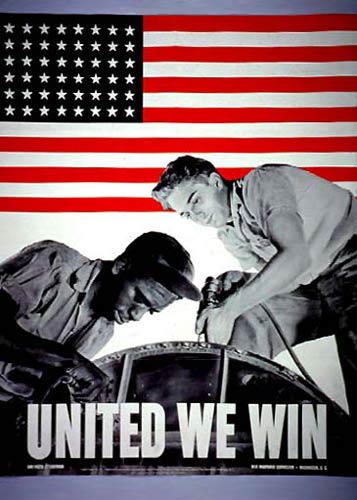
Effects
United Nations
Marshall Plan
Potsdam Conference
Yalta Conference
Tehran Conference



One of the most controversial matters addressed at the Potsdam Conference dealt with the revision of the German-Soviet-Polish borders and the expulsion of several million Germans from the disputed territories. In exchange for the territory it lost to the Soviet Union following the readjustment of the Soviet-Polish border, Poland received a large swath of German territory and began to deport the German residents of the territories in question, as did other nations that were host to large German minority populations. The negotiators at Potsdam were well-aware of the situation, and even though the British and Americans feared that a mass exodus of Germans into the western occupation zones would destabilize them, they took no action other than to declare that "any transfers that take place should be effected in an orderly and humane manner" and to request that the Poles, Czechoslovaks and Hungarians temporarily suspend additional deportations.In addition to settling matters related to Germany and Poland, the Potsdam negotiators approved the formation of a Council of Foreign Ministers that would act on behalf of the United States, Great Britain, the Soviet Union, and China to draft peace treaties with Germany's former allies. Conference participants also agreed to revise the 1936 Montreux Convention, which gave Turkey sole control over the Turkish Straits. Furthermore, the United States, Great Britain, and China released the "Potsdam Declaration," which threatened Japan with "prompt and utter destruction" if it did not immediately surrender (the Soviet Union did not sign the declaration because it had yet to declare war on Japan).The Potsdam Conference is perhaps best known for President Truman's July 24, 1945 conversation with Stalin, during which time the President informed the Soviet leader that the United States had successfully detonated the first atomic bomb on July 16, 1945. Historians have often interpreted Truman's somewhat firm stance during negotiations to the U.S. negotiating team's belief that U.S. nuclear capability would enhance its bargaining power. Stalin, however, was already well-informed about the U.S. nuclear program thanks to the Soviet intelligence network, so he also held firm in his positions. This situation made negotiations challenging. The leaders of the United States, Great Britain, and the Soviet Union, who, despite their differences, had remained allies throughout the war, never met again collectively to discuss cooperation in postwar reconstruction.
"Potsdam"[http://www.trumanlibrary.org/teacher/potsdam.htm]
"The Teheran, Yalta and Potsdam Conferences"[http://militaryhistory.suite101.com/article.cfm/cold_war_conferences]
"Potsdam Conference"[http://www.history.navy.mil/photos/events/wwii-dpl/hd-state/potsdam.htm]
"Potsdam Conference"[http://encarta.msn.com/encyclopedia_761554624/potsdam_conference.html]

In the immediate post-World War II period, Europe remained ravaged by war and thus susceptible to exploitation by an internal and external Communist threat. In a June 5, 1947, speech to the graduating class at Harvard University, Secretary of State George C. Marshall issued a call for a comprehensive program to rebuild Europe. Fanned by the fear of Communist expansion and the rapid deterioration of European economies in the winter of 1946-1947, Congress passed the Economic Cooperation Act in March 1948 and approved funding that would eventually rise to over $12 billion for the rebuilding of Western Europe.The Marshall Plan generated a resurgence of European industrialization and brought extensive investment into the region. It was also a stimulant to the U.S. economy by establishing markets for American goods. Although the participation of the Soviet Union and East European nations was an initial possibility, Soviet concern over potential U.S. economic domination of its Eastern European satellites and Stalin's unwillingness to open up his secret society to westerners doomed the idea. Furthermore, it is unlikely that the U.S. Congress would have been willing to fund the plan as generously as it did if aid also went to Soviet Bloc Communist nations.Thus the Marshall Plan was applied solely to Western Europe, precluding any measure of Soviet Bloc cooperation. Increasingly, the economic revival of Western Europe, especially West Germany, was viewed suspiciously in Moscow. Economic historians have debated the precise impact of the Marshall Plan on Western Europe, but these differing opinions do not detract from the fact that the Marshall Plan has been recognized as a great humanitarian effort. Secretary of State Marshall became the only general ever to receive a Nobel Prize for peace. The Marshall Plan also institutionalized and legitimized the concept of U.S. foreign aid programs, which have become a integral part of U.S. foreign policy.

On January 1, 1942, representatives of 26 nations at war with the Axis powers met in Washington to sign the Declaration of the United Nations endorsing the Atlantic Charter, pledging to use their full resources against the Axis and agreeing not to make a separate peace. At the Quebec Conference in August 1943, Secretary of State Cordell Hull and British Foreign Secretary Anthony Eden agreed to draft a declaration that included a call for "a general international organization, based on the principle sovereign equality of all nations." An agreed declaration was issued after a Foreign Ministers Conference in Moscow in October 1943. When President Franklin D. Roosevelt met with Soviet Premier Joseph Stalin in Tehran, Iran, in November 1943, he proposed an international organization comprising an assembly of all member states and a 10-member executive committee to discuss social and economic issues. The United States, Great Britain, Soviet Union, and China would enforce peace as "the four policemen." Meanwhile Allied representatives founded a set of task-oriented organizations: the Food and Agricultural Organization (May 1943), the United Nations Relief and Rehabilitation Administration (November 1943), the United Nations Educational, Scientific, and Cultural Organization (April 1944), the International Monetary Fund and the World Bank (July 1944), and the International Civil Aviation Organization (November 1944).U.S., British, Soviet, and Chinese representatives met at Dumbarton Oaks in Washington in August and September 1944 to draft the charter of a postwar international organization based on the principle of collective security. They recommended a General Assembly of all member states and a Security Council consisting of the Big Four plus six members chosen by the Assembly. Voting procedures and the veto power of permanent members of the Security Council were finalized at the Yalta Conference in 1945 when Roosevelt and Stalin agreed that the veto would not prevent discussions by the Security Council. Roosevelt agreed to General Assembly membership for Ukraine and Byelorussia while reserving the right, which was never exercised, to seek two more votes for the United States.Representatives of 50 nations met in San Francisco April-June 1945 to complete the Charter of the United Nations. In addition to the General Assembly of all member states and a Security Council of 5 permanent and 6 non-permanent members, the Charter provided for an 18-member Economic and Social Council, an International Court of Justice, a Trusteeship Council to oversee certain colonial territories, and a Secretariat under a Secretary General. The Roosevelt administration strove to avoid Woodrow Wilson's mistakes in selling the League of Nations to the Senate. It sought bipartisan support and in September 1943 the Republican Party endorsed U.S. participation in a postwar international organization, after which both houses of Congress overwhelmingly endorsed participation. Roosevelt also sought to convince the public that an international organization was the best means to prevent future wars. The Senate approved the UN Charter on July 28, 1945, by a vote of 89 to 2. The United Nations came into existence on October 24, 1945, after 29 nations had ratified the Charter.
"United Nations"[http://www.worldwar2database.com/html/postwar.htm]
"United Nations"[http://library.thinkquest.org/C008616/site/ThinkQuest/linked%20pages/WWII%20and%20the%20United%20Nations.htm]
